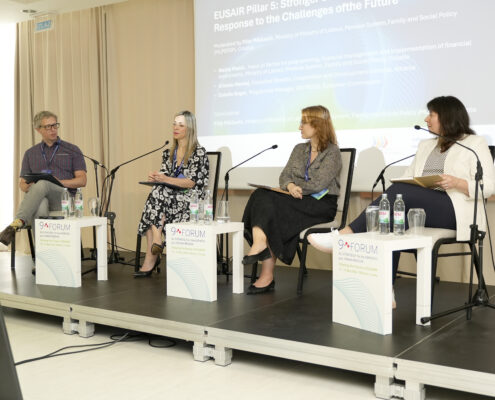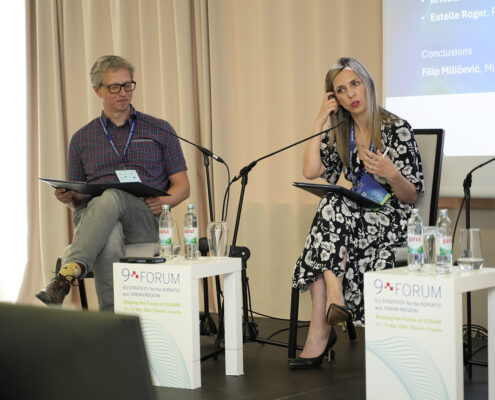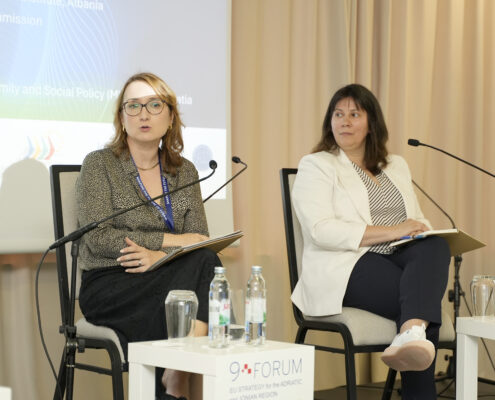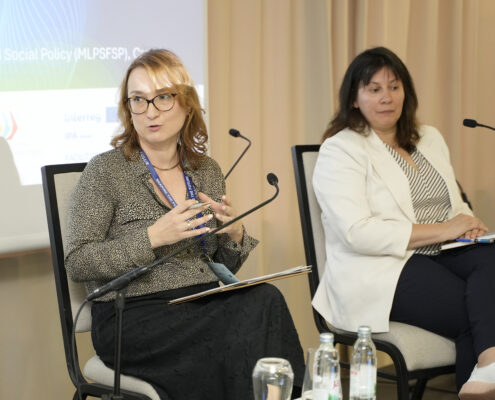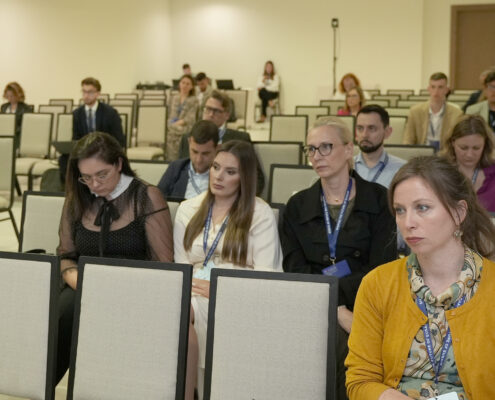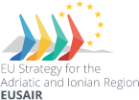9th Annual EUSAIR Forum
Šibenik, Croatia | 15 - 16 May 2024CONCLUSIONS OF THE PILLAR V SESSION
Stronger Social Cohesion - a response to the challenges of the future
Improved social cohesion is the new, 5th pillar in the EUSAIR. By which Strategy corresponds more strongly with the fourth policy objective of the EU Cohesion Policy: "a more social and inclusive Europe".
Revision of the strategy and introduction of the new pillar is strongly welcomed and supported by the European Commission. The MRS is a cooperation framework to foster economic, social and territorial cohesion in the area. Also it will allow the countries to work more closely on labour market and social related issues and improve social cohesion across the borders.
EUSAIR countries face the same social challenges that in other parts of EU, for example a new demographic reality – shrinking and ageing population.
Through the activities foreseen in the 5th Pillar, it is intended to respond to identified challenges, taking into account the importance of preserving and promoting the European social model.
For the candidate countries that are working towards membership, this new pillar will give further opportunities to mutually learn and exchange on social rights, to be stronger linked to the European “social” acquis, to the European pillar of social rights. The progress on the European Pillar of Social Rights is not only being monitored in EU countries, but also in Western Balkan countries in the enlargement and negotiations context, said Estelle Roger, Programme Manager in EC, DG REGIO.
Croatian Ministry of Labour, Pension System, Family and Social Policy, Directorate for management of EU operational programmes is the coordinator of thematic pillar 5 – Improved social cohesion. By that a rare and useful synergy for the Strategy is achieved: the same institution is simultaneously the coordinator of the EUSAIR pillar and the Managing Authority of European social fund plus. This is very useful for implementing priorities of macro-regional strategies in basic programmes for the use of EU funds.
The main goal is to harmonize the Adriatic-Ionian region with the strategies and policies of the European Union aimed at improving social cohesion, in accordance with the broader framework of green and digital transition, said Naida Mekić Head of Sector in Croatian Ministry of Labour, Pension System, Family and Social Policy.
It was outlined that the region has an active civil society, which is an important asset for solving social issues in the context of EUSAIR. One of them is Cooperation and Development Institute (CDI), a Think Tank from Tirana, Albania, as a non-profit and non-governmental organization. CDI’s ongoing initiatives and projects are dedicated to amplifying youth involvement in policy-making aiming reforms and enlargement process.
High levels of youth unemployment and economic disparities within the region create obstacles to cooperation. Young people will prioritize individual economic survival (emigration top choice) over collective action. One of the suggestions on how to improve youth involvement is to incorporate a "youth impact assessment" into policy design. Implement monitoring and evaluation framework that consistently gathers and processes data on youth participation is of great value in planning future activities, emphasized Krisela Hackaj, CDI's Executive Director.





